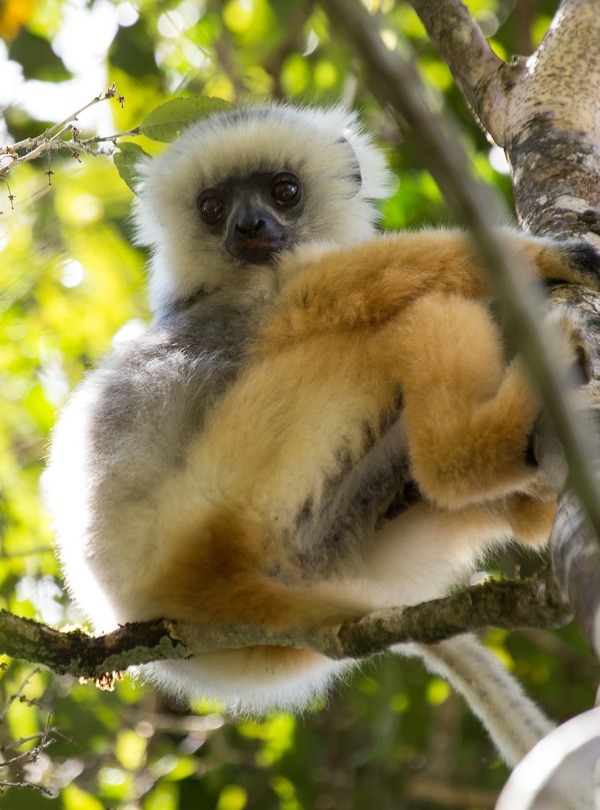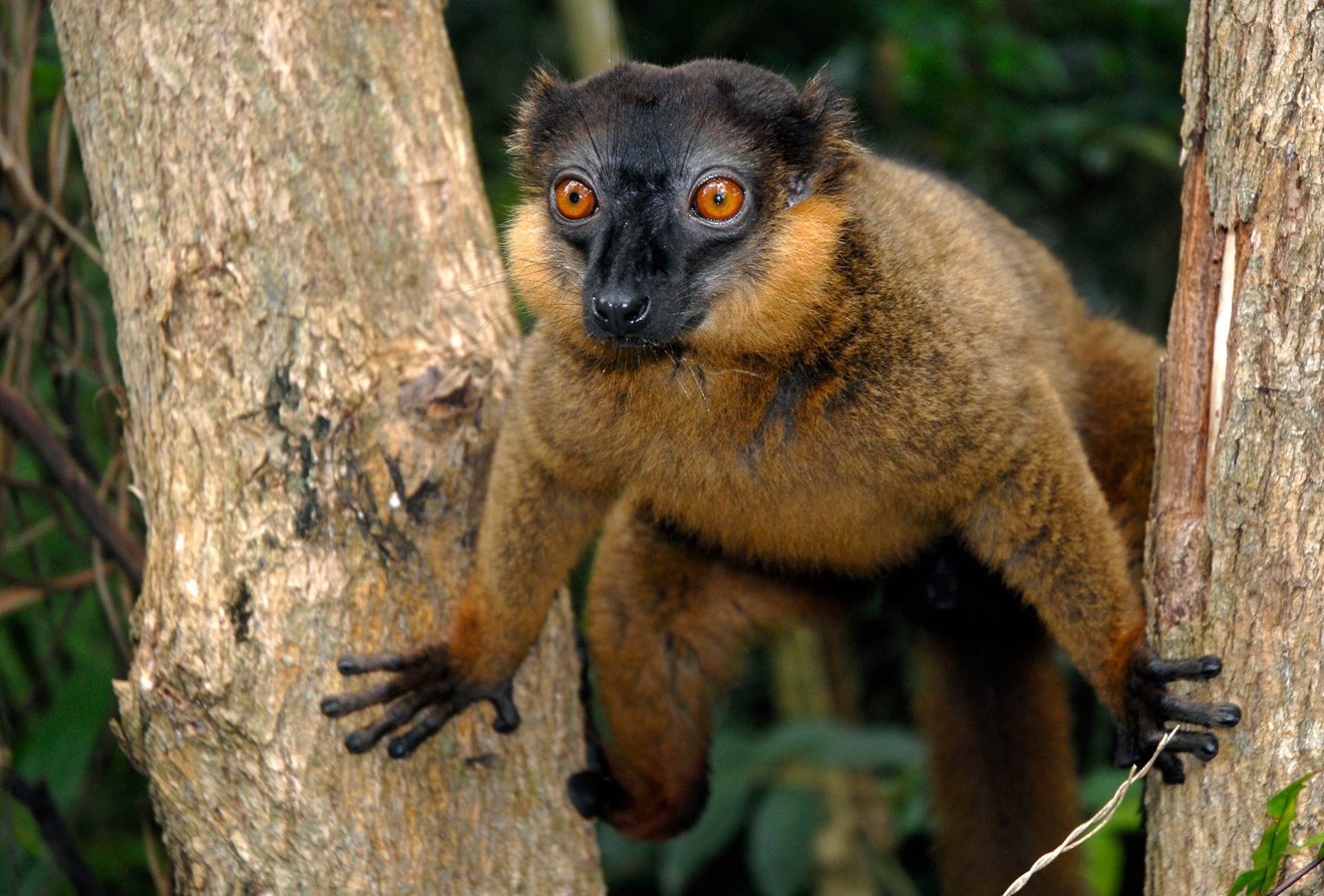
Secure One of Madagascar’s Largest Unprotected Rainforests for Lemurs
Support more work like this Support more work like thisDeforestation, illegal logging and hunting threaten Endangered lemurs in one of Madagascar’s last remaining rainforests.
-
Species at Risk
Haraldmeier’s Mantella (EN), Spinomatis brunae (EN), Two-banded Chameleon (EN), Anosy Mouse Lemur (EN), Collared Brown Lemur (EN), Southern Woolly Lemur (EN)
-
Carbon stored
43,367,857 mT*
*(metric tons of CO2 equivalents) -
Partner
Nitidae
-
275,325 Proposed Acres Conserved by
Designation
-
Project Cost: $1,637,965
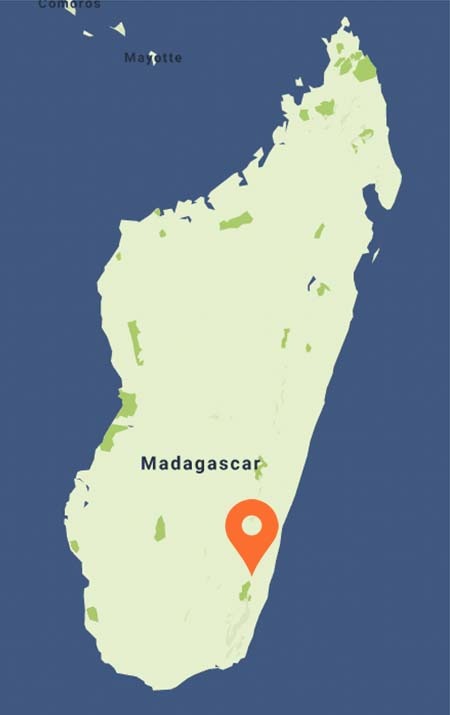
275,325
Deforestation, illegal logging and hunting threaten Endangered lemurs in one of Madagascar’s last remaining rainforests.
-
Species at Risk
Haraldmeier’s Mantella (EN), Spinomatis brunae (EN), Two-banded Chameleon (EN), Anosy Mouse Lemur (EN), Collared Brown Lemur (EN), Southern Woolly Lemur (EN)
-
Carbon stored
43,367,857 mT*
*(metric tons of CO2 equivalents) -
Partner
Nitidae
-
275,325 Proposed Acres Conserved by
Designation
-
Project Cost: £1,353,690

275,325
Six species of lemur—three of which are endangered—as well as rare amphibians and reptiles, are losing vital habitat on Madagascar as illegal logging and slash-and-burn agriculture fragment remaining rainforests.
Rainforest Trust and our partner, Nitidae, are working to establish the 275,325-acre Beampingaratsy Protected Area. Once safeguarded, this 87-mile-long corridor bridges a gap between two national parks to create a contiguous 1.2-million-acre refuge of this lush rainforest for endangered species.
Among the rare wildlife found here are the Anosy Mouse Lemur, Collared Brown Lemur and Southern Woolly Lemur. In addition, the Madagascar Climbing Frog, Haraldmeier’s Mantella—a species of frog—and the Two-banded Chameleon are also found in these old-growth rainforests.
Header photo: The Collared Brown Lemur, by Coulanges
Explore Madagascar’s Threatened Wildlife
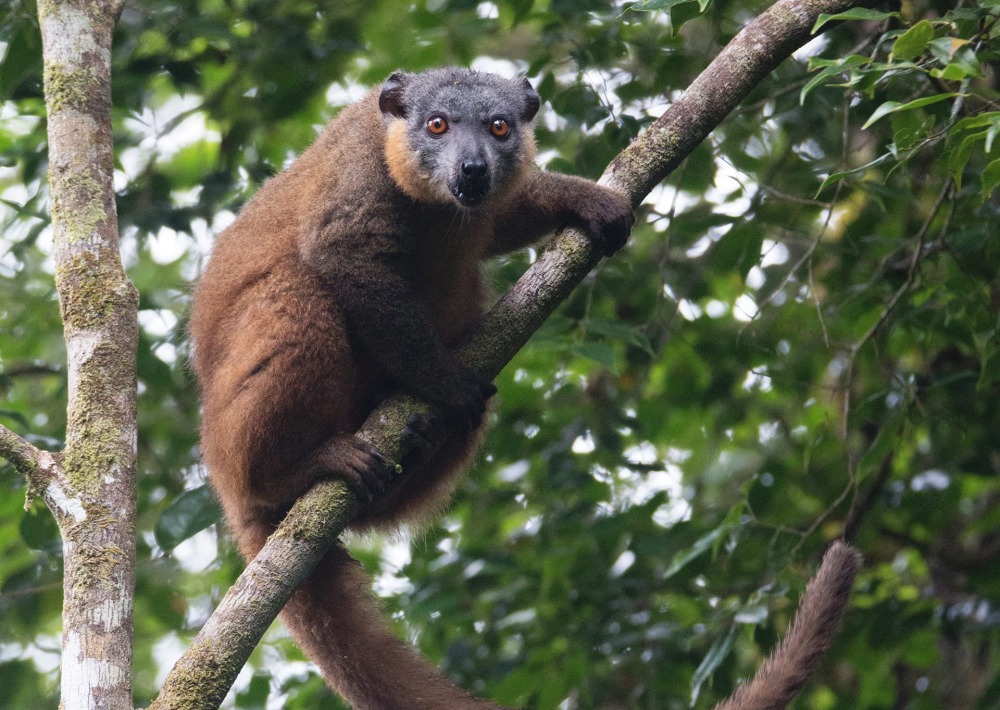
Collared Brown Lemur (Eulemur collaris), by Nitidae
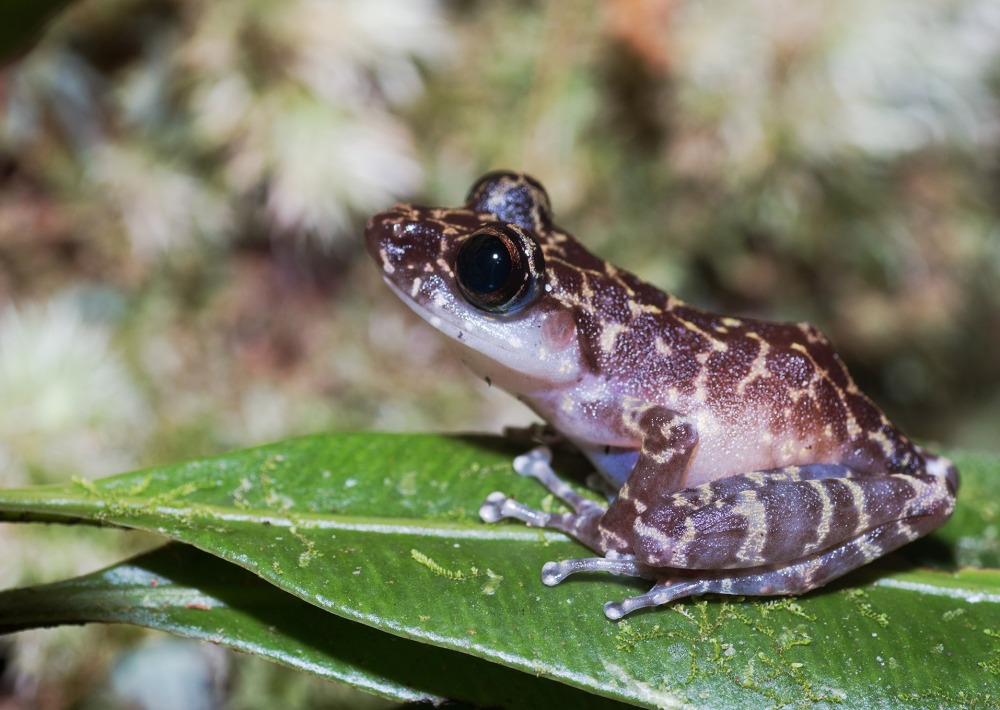
The Spinomantis brunae, by Nitidae
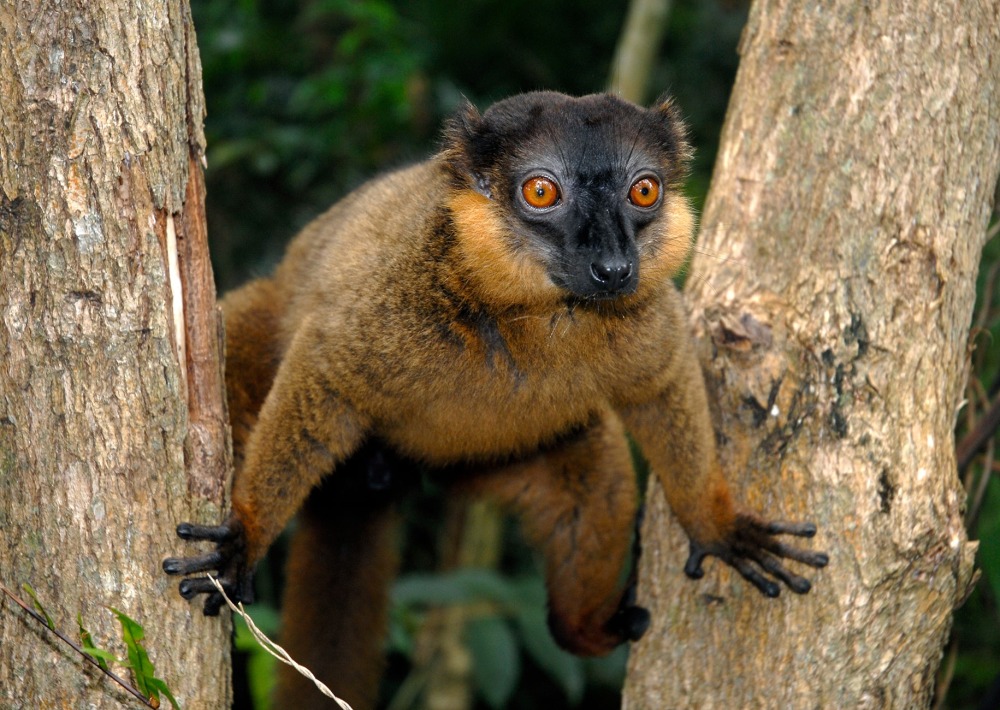
Collared Brown Lemur, by Coulanges
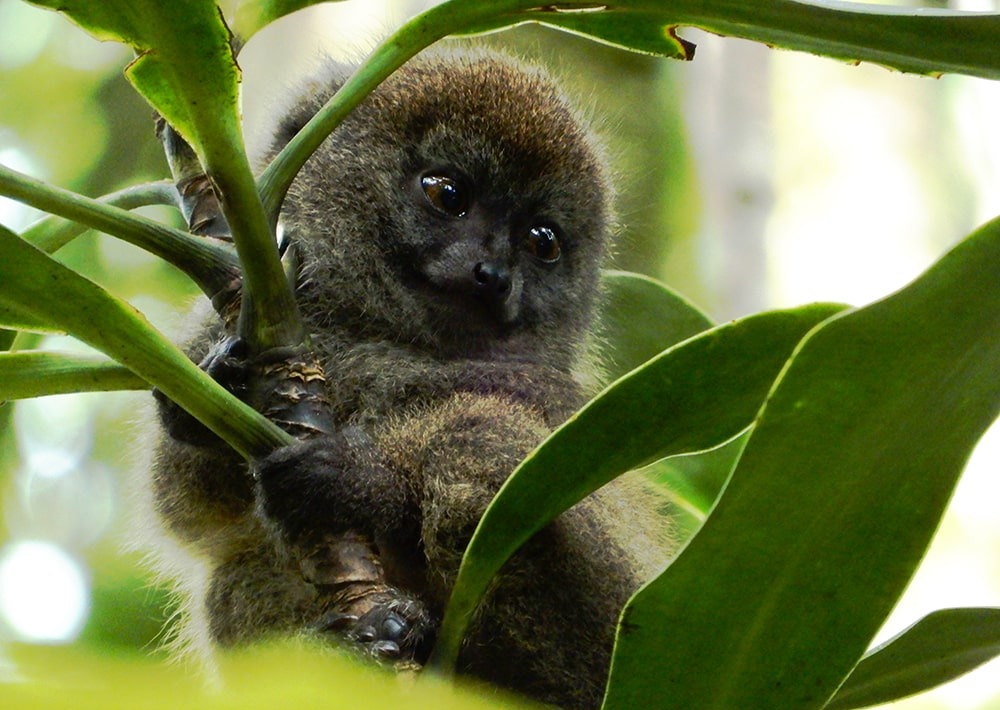
Southern Lesser Bamboo Lemur, (Hapalemur meridionalis), by Nitidae
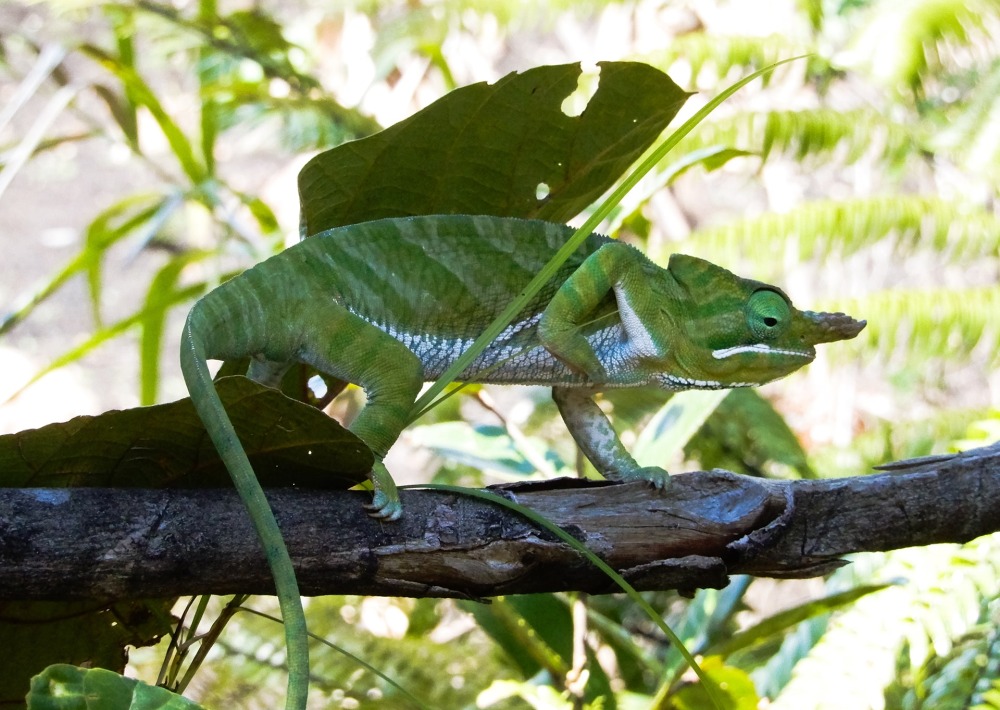
The Two-banded Chameleon (Furcifer balteatus), by Nitidae
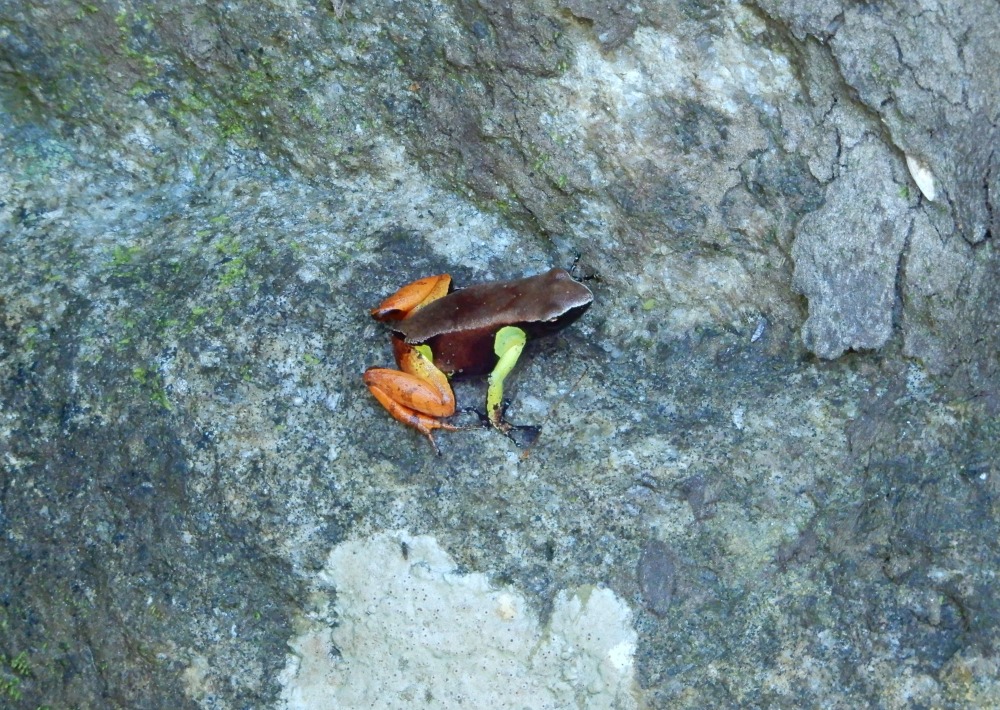
Haraldmeier's Mantella, by Nitidae
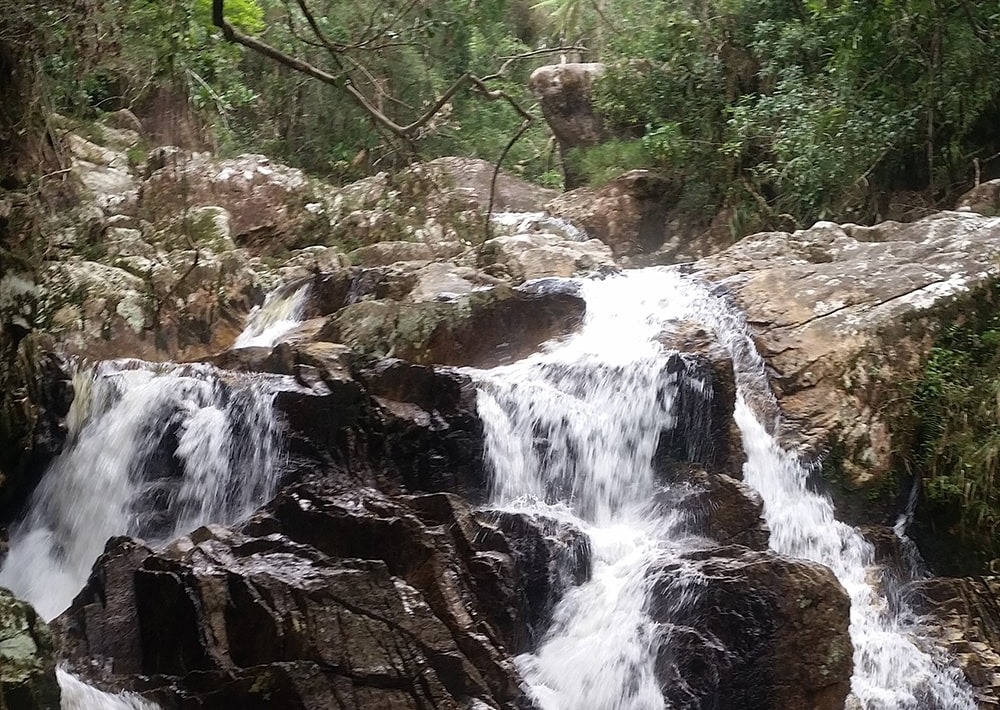
Waterfall in the Beampingaratsy, by Nitidae
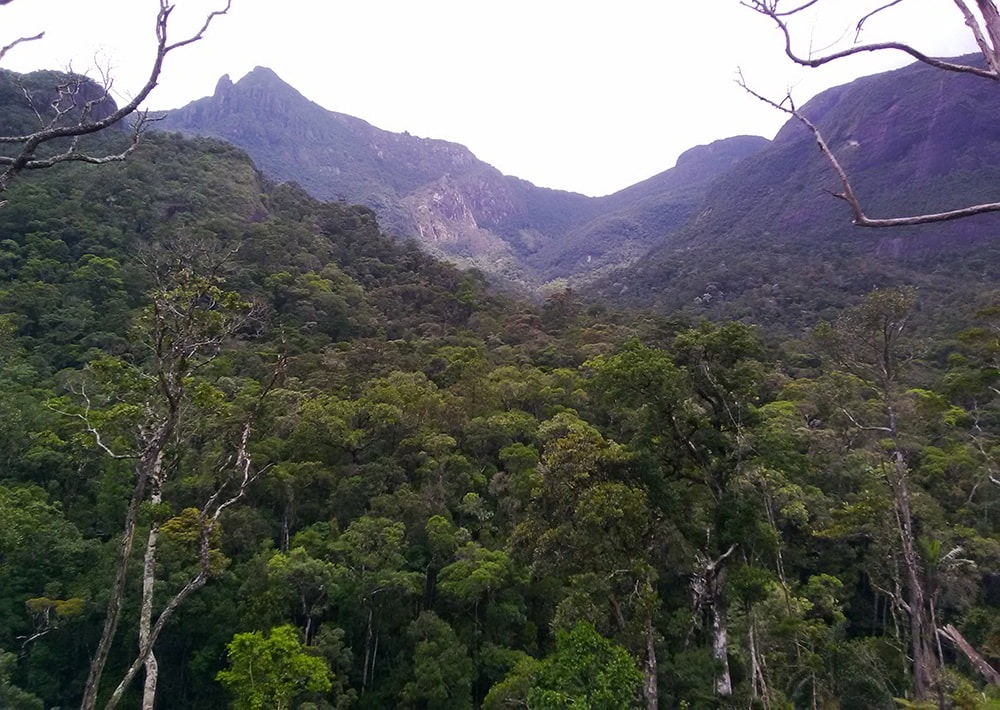
The Beampingaratsy Forest, by Nitidae
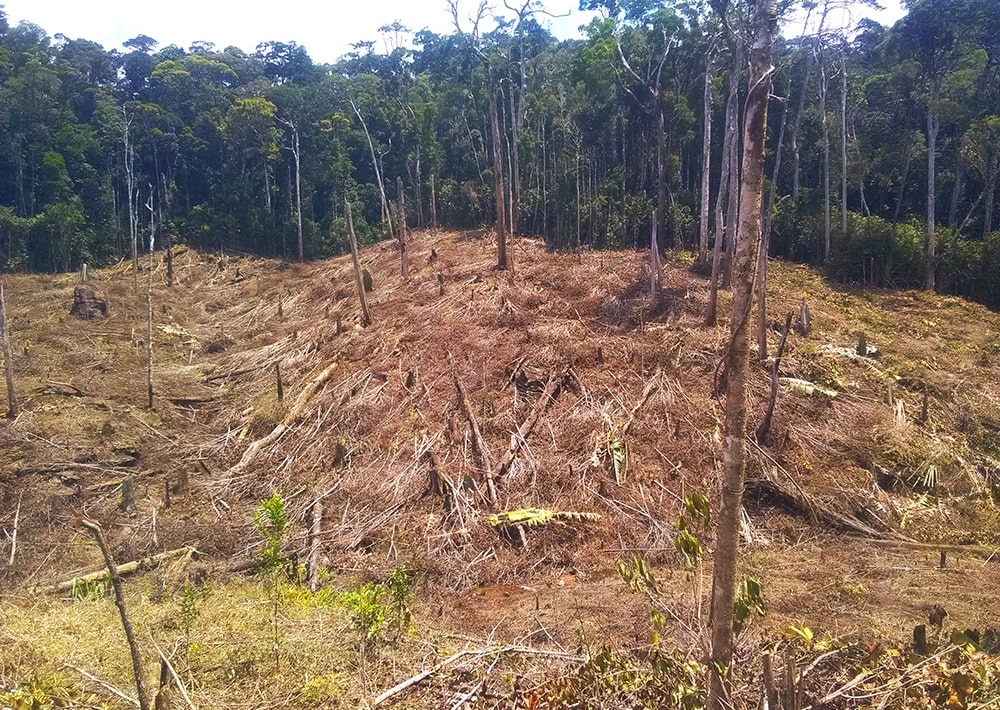
Deforestation in Beampingaratsy Forest, by Nitidae
Madagascar is Home to
ENDEMIC SPECIES
An Important Landscape for Species and People
There are many rivers and streams flowing from the Beampingaratsky hills towards the Indian Ocean, eventually joining together into two major rivers that provide water for more than 17,000 households.
Madagascar has a long history of unsustainable land use that has been devastating to people and the rich tapestry of endemic biodiversity found here. Our partner has been working for nearly 10 years in this area to address community concerns and provide solutions that are more efficient and sustainable and align with conservation. Community members will be engaged in conservation activities including monitoring species and fire prevention.
An Island Hotspot of Biodiversity
A biodiversity inventory conducted in 2020 by our partner here revealed 185 vertebrate species, including 44 amphibians, 32 reptiles, 78 birds, 16 small, non-flying mammals, 6 lemurs, 4 bats, 4 carnivores and one tenrec. Among these, 170 are endemic to Madagascar and 39 species are at risk of extinction.
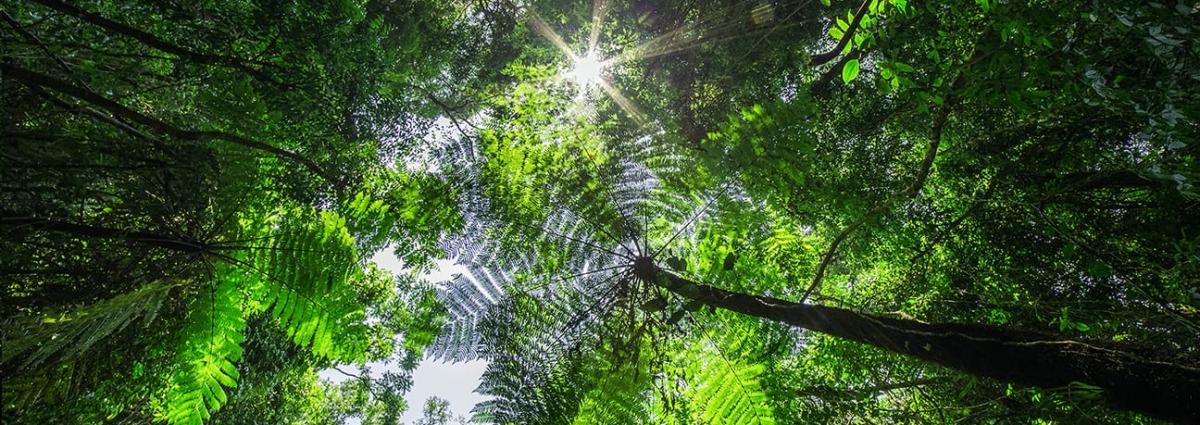
We Value Transparency.
Conservation work is critical, challenging, and can be costly. We work hard to ensure we raise only the funds needed for each project. In the rare case we raise more money than needed or a project comes in under budget, excess monies will be transferred to the Conservation Action Fund. This fund supports our important conservation work throughout the tropics.
Learn more about the Conservation Action FundLearn more about the Conservation Action Fund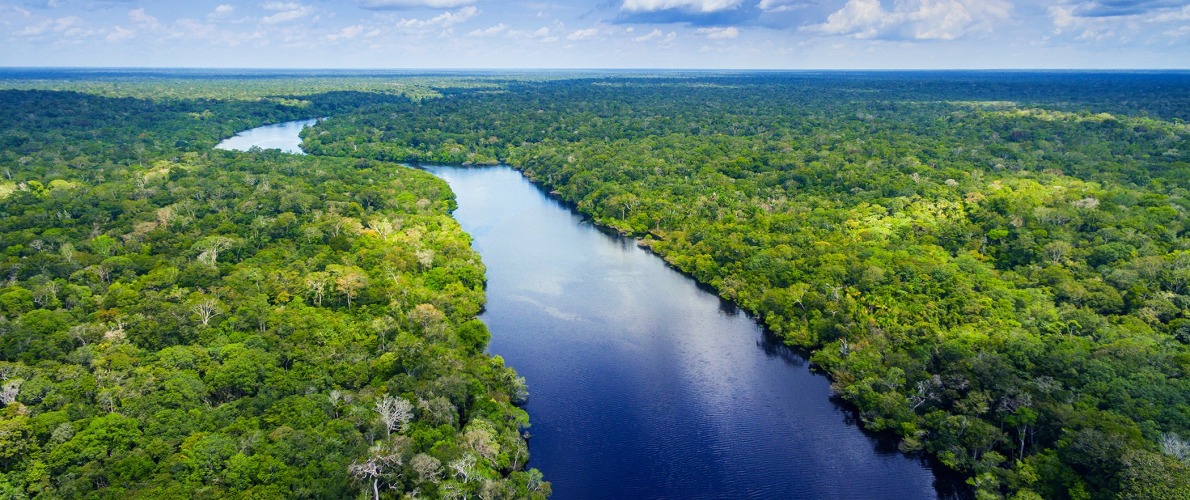
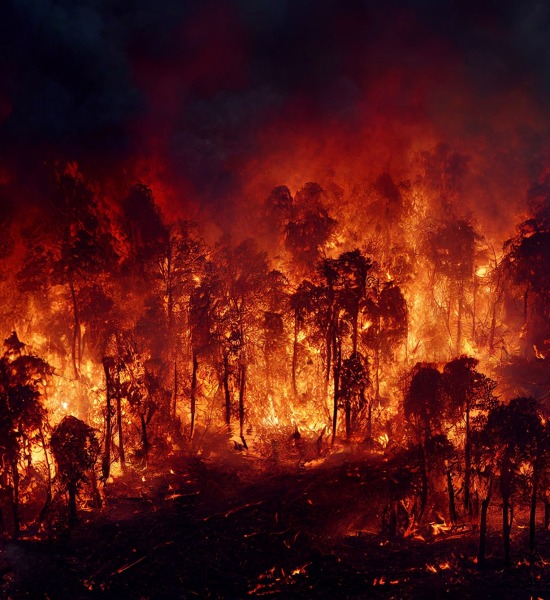

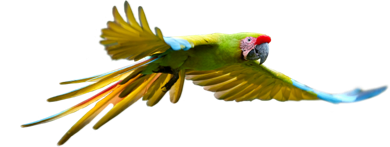
Partnering to Save Rainforest
Our partners’ ability to work with their governments and build strong connections with local communities ensures the successful implementation of our projects.
Learn More About This PartnerLearn More About This Partner
